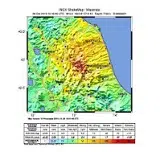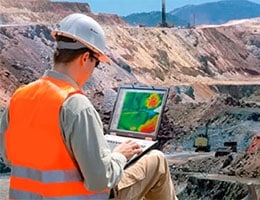 Geophysics is a scientific discipline focused on the study of Earth physics . This branch of geology is responsible for analyzing the Earth from the perspective of physics, taking into account the history of the planet, its structure and other factors.
Geophysics is a scientific discipline focused on the study of Earth physics . This branch of geology is responsible for analyzing the Earth from the perspective of physics, taking into account the history of the planet, its structure and other factors.
To develop its studies, geophysics uses various quantitative methods, measuring electromagnetic fields , radiation and gravity , for example. Depending on the specific field of study, one can differentiate between external geophysics , which focuses on the planet 's environment, and internal geophysics , specialized in the Earth's interior.
Meteorology , climatology , gravimetry and space geophysics are some of the specializations linked to external geophysics. Seismology , volcanology and geodynamics , on the other hand, are associated with internal geophysics.
Let's see below some details of the disciplines just mentioned. Meteorology is responsible for studying the atmosphere and the so-called weather, taking into account the scope of the troposphere (the layer of the Earth's atmosphere that reaches its surface). Climatology can be considered both a branch of geography and a science in itself, and focuses on the climate and the changes it undergoes over chronological time; Precisely, the current climate and the past come into its points of interest.
Gravimetry is known as the branch of physics that is dedicated to the study of the Earth's gravitation and the measurement of its alterations at various points on the planet. For its development, gravimetry requires observations on the planet itself as well as from some satellites.
With respect to space geophysics, we can say that it focuses on the study of the physical processes that are related to the plasma found in the magnetosphere and the ionosphere, as well as the way in which they interact with the solar wind. It is especially recognized for its theory linked to the transfer of energy that causes polar auroras .
 Seismology focuses on the internal structure of our planet, telluric movements and plate tectonics , among other topics. To do this, it takes advantage of seismograms, which provide readings of seismic waves. The study of phenomena related to volcanoes, magma and lava is known as volcanology , a discipline that has also led scientists to discover low-temperature volcanic activity in bodies such as Enceladus , the sixth largest satellite. of Saturn.
Seismology focuses on the internal structure of our planet, telluric movements and plate tectonics , among other topics. To do this, it takes advantage of seismograms, which provide readings of seismic waves. The study of phenomena related to volcanoes, magma and lava is known as volcanology , a discipline that has also led scientists to discover low-temperature volcanic activity in bodies such as Enceladus , the sixth largest satellite. of Saturn.
Geodynamics is the part of geology that specializes in the forces and agents that participate in the dynamic processes of our planet. Just like geophysics, it is divided into a field that studies internal phenomena and another that focuses on external ones.
What geophysics does is help understand how our planet worked and works from the interpretation of physical processes . In this way, a geophysics specialist can explain how hurricanes form or why the Earth shakes, for example. Their knowledge not only contributes to the understanding and measurement of phenomena: it is also useful for predicting certain natural events.
It is important to keep in mind that geophysics is applied in numerous industries and fields. Their studies serve to evaluate the minerals found in the Earth's crust and to analyze their possible exploitation. On the other hand, they can indicate which land is appropriate for the development of an engineering work or how drilling should be carried out in search of hydrocarbons.
